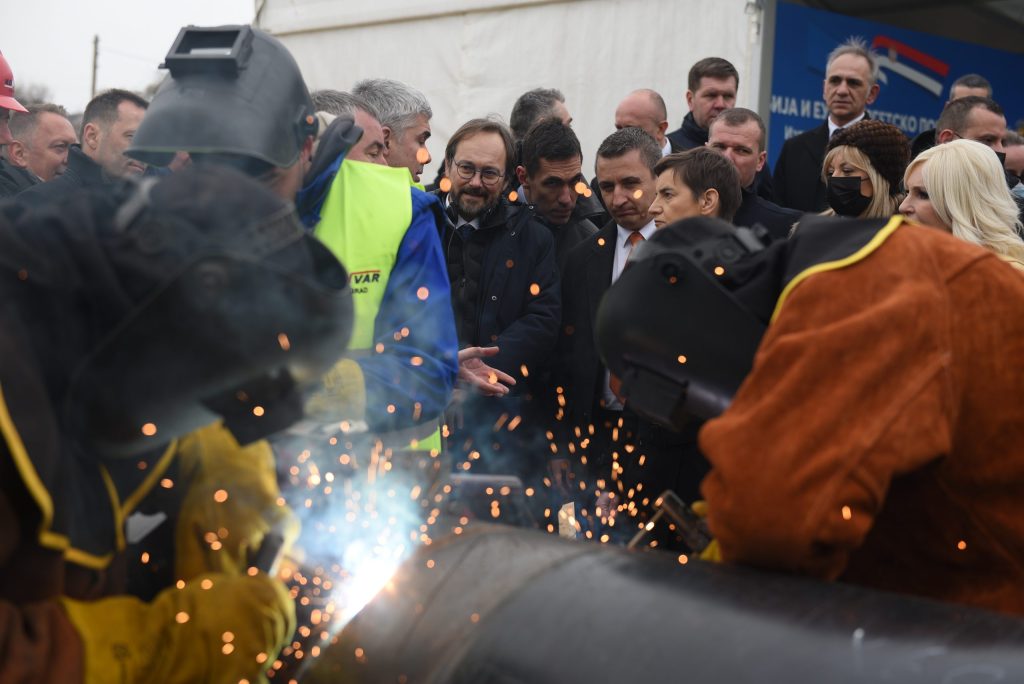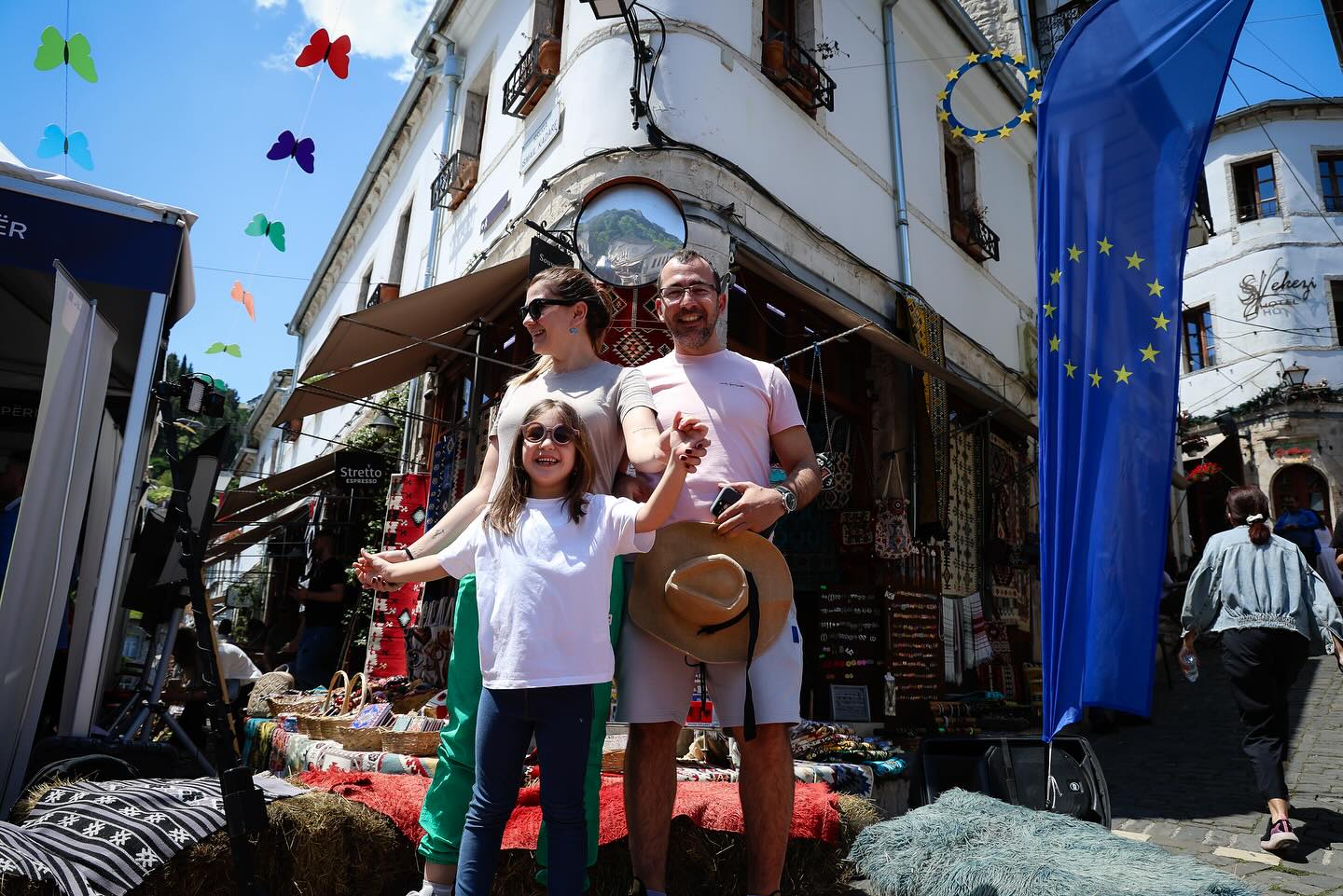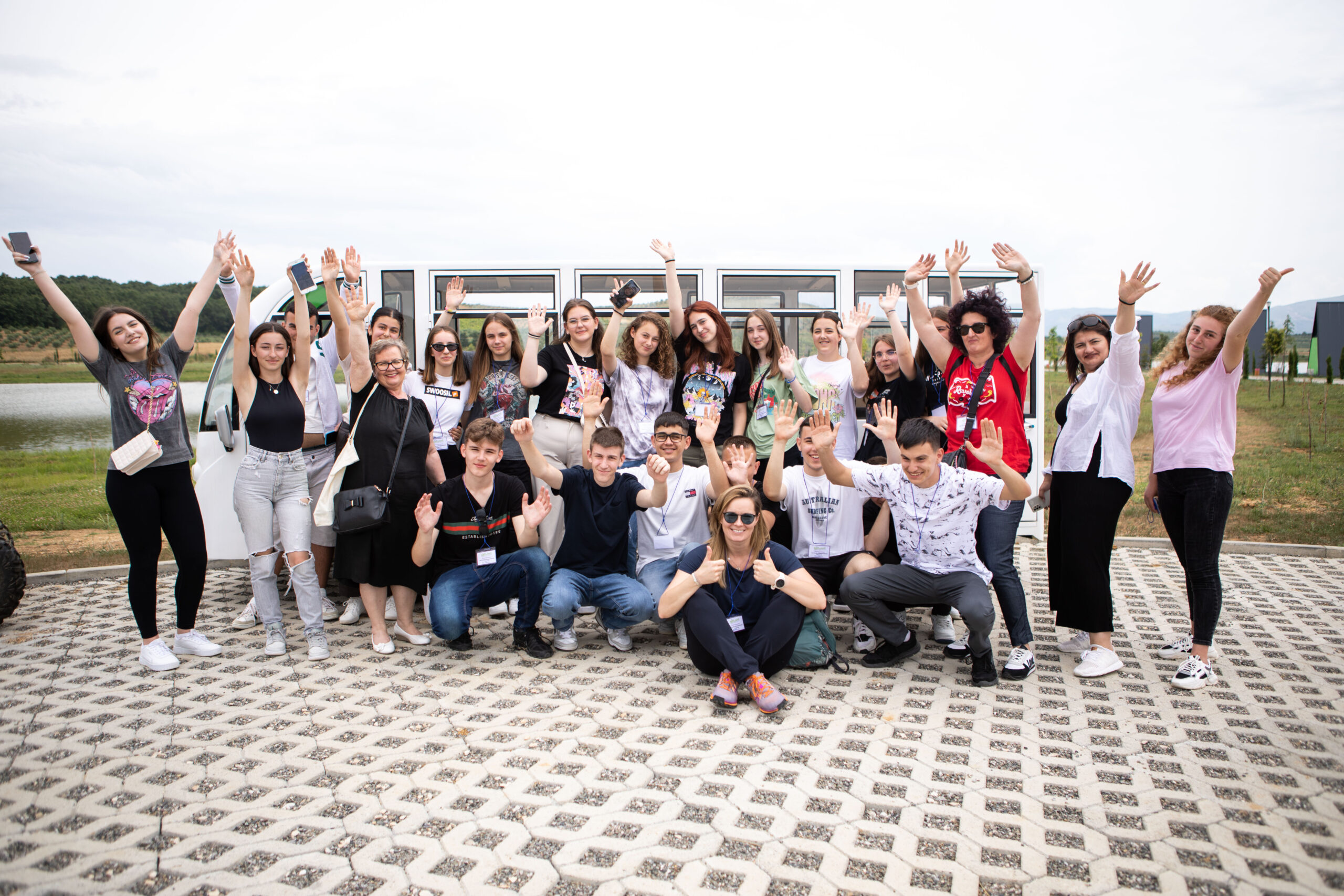Start of works on EU-supported Serbia-Bulgaria gas interconnector

Start of works on EU-supported Serbia-Bulgaria gas interconnector
On 1 February, construction work started on the Serbian section of the 171km natural gas interconnector that will connect Niš (Serbia) and Sofia (Bulgaria) and increase regional energy security. Citizens in Bela Palanka, Dimitrovgrad and Pirot in south-eastern Serbia will have access to a source of energy for heating that is cleaner and cheaper than before, while the new connection will also bring big benefits for industry and many other areas of the economy.
The European Union provided €49.5 million in non-refundable grants for the Serbia-Bulgaria gas interconnector project, combined with a €25 million loan on favourable terms from the European Investment Bank.
Speaking at the opening of construction works near Dimitrovgrad, the Ambassador of the European Union to Serbia, Emanule Giaufret, signalled the importance of this project for energy connection between Serbia and the EU.
“This is another step towards better connections between Serbia and the European Union. We connect in two very important areas. The first is energy security, and the second is a cleaner environment. These two areas are important in the context of European integration, but also for every citizen of Serbia.
“Today, we are taking an important step towards securing exactly these two things,” said Ambassador Giaufret. “Transition and modernisation require significant investments. With this investment, we reaffirm the European Union’s commitment to helping Serbia transition from coal to less polluting energy sources.”
This new gas pipeline will allow a flow of 1.8 billion cubic metres of natural gas annually and is due to be completed by the end of 2023. It will provide an additional 80% of capacity relative to Serbia’s current annual gas needs, significantly increase the overall security of natural gas supply, and contribute to cleaner energy targets.
This will also enable more diversified energy sources in Serbia and the Western Balkan region, reducing dependency on one dominant supplier. The sources could include the LNG (liquefied natural gas) from Greece and Azeri gas coming through the TANAP (Turkey) and TAP (GR) pipelines. This means more energy security, more competition in the market and less polluting energy for Serbia.
Gas pipelines supportive of the low carbon transition and transit of decarbonised gas and hydrogen play a key role in the transition from coal to more sustainable and green energy production. The gas interconnector has therefore been identified as a flagship project in the EU’s Economic and Investment Plan for the Western Balkans.
The Western Balkans Investment Framework (WBIF) – a joint initiative of the EU, financial organisations, bilateral donors and beneficiaries that pools funds from the various sources and aims to enhance cooperation in investments in the region – provided a technical assistance grant for the preparation of the feasibility study.
Photo credits: Western Balkans Investment Framework



